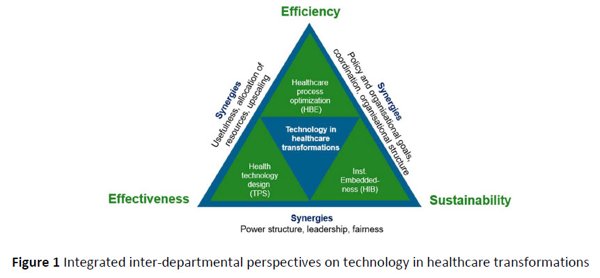Research program: Technology in Healthcare Transformations (THT)
To successfully address current healthcare and societal challenges, interdisciplinary research and education are essential to achieve impact. This is the core of THT.
- Inter-departmental expertise community of Health@BMS, the health & healthcare research community of the Behavioral Management & Social Science faculty
- Lead: dr.ir. Gréanne Leeftink (HBE, IEBIS - CHOIR), dr. Anke Lenferink (TPS, HTSR), dr. Caroline Fischer (HIB, PA), dr. Mireille Post-Hubers (LDT, OWK).
The Technology in Healthcare Transformations (THT) initiative pioneers interdisciplinarity by uniting all four BMS faculty departments (HIB, HBE, TPS, LDT) in both impact-based research and teaching. The inter-departmental expertise community THT is embedded in the Health@BMS research theme and well-integrated in TechMed Center and UT at large. Transformations in the healthcare sector in which novel technologies play a crucial role are in full swing. With the THT research program we aim to be at the forefront of the scientific development of technology in healthcare transformations.
Introduction
Demographic change, growing numbers of people with chronic diseases, increasing healthcare consumption and costs, and a shortage in healthcare professionals put increasing pressures on healthcare systems. These pressures form one of the most urgent societal challenges of Western societies for the coming years. Professionally managed healthcare transformations are needed to ensure an efficient, effective, and sustainable future-proof provision of healthcare. The THT research program provides a tremendously valuable opportunity to optimize the implementation of new forms of healthcare, healthcare infrastructure, and healthcare organisation that are affected by novel technologies. Examples of these are the shift of care from hospitals to primary or home care, digitized health communication and monitoring, patient-centred organisation, and care network forming. These transformations require novel forms of thinking and collaborating among a multitude of actors, integrating various stakeholder preferences, priorities, and motives to act. We are convinced that such a multi-faceted transformation processes within the healthcare system can only be adequately addressed by taking an integrated inter-disciplinary approach. This approach requires us to join forces, and form a community that will extend to UT at large and beyond. The THT expertise community provides novel synergies in research collaborations between BMS disciplines that address three factors that are at the core of the transformational healthcare processes: effectiveness, efficiency, and sustainability.
Mission Statement
THT aims to make technology-driven changes in healthcare transformations:
- efficient, in terms of optimizing transformational processes in the healthcare system;
- effective, in terms of providing holistic yet personalized care, using reliable, valid and (cost)effective healthcare technologies to support healthcare transformations; and
- sustainable, in terms of embedding it into the organizational routines as well as governance structures.
It aims to do so by uniting expertise, knowledge, and skills of Health Sciences, Industrial Engineering, Public Administration and Professional Learning. Figure 1 visualises the three key foci of the BMS departments and the synergies that we raise through the inter-departmental collaboration. By joining forces, we created a novel programmatic research approach within the THT expertise community that promotes the development of an innovative view on transformational processes in healthcare systems. This community aims to be a beacon of expertise for technology in healthcare transformations in Health@BMS, strategically embedded in close partnerships within the UT and the healthcare sector and accessible for stakeholders in the various healthcare transformation processes.

Embedding within UT
The research program of the THT expertise community evidently aligns with the mission of TechMed to create an impact on healthcare. We do this by extending the technological perspective of scientific excellence and clinical application with our focus on various stakeholders, processes, and healthcare organizations.
Organisationally, the THT expertise community leaders are embedded in the Health@BMS working group; working with, and supported by Prof. Carine Doggen, Prof. Erwin Hans, and Prof. René Torenvlied – thus contributing to an integrated collaboration of BMS-experts in the field of healthcare transformations.
Want to know more or get involved?
Ultimately, the success of an interdisciplinary research community depends on the dedication and enthusiasm of its members, as well as their ability to work together effectively towards common goals. Do you want to join efforts in our interdisciplinary group? Do you have a challenge in your organisation that suits an interdisciplinary approach? Or do you want to know more about us and our way of working? Please reach out to us via email!
